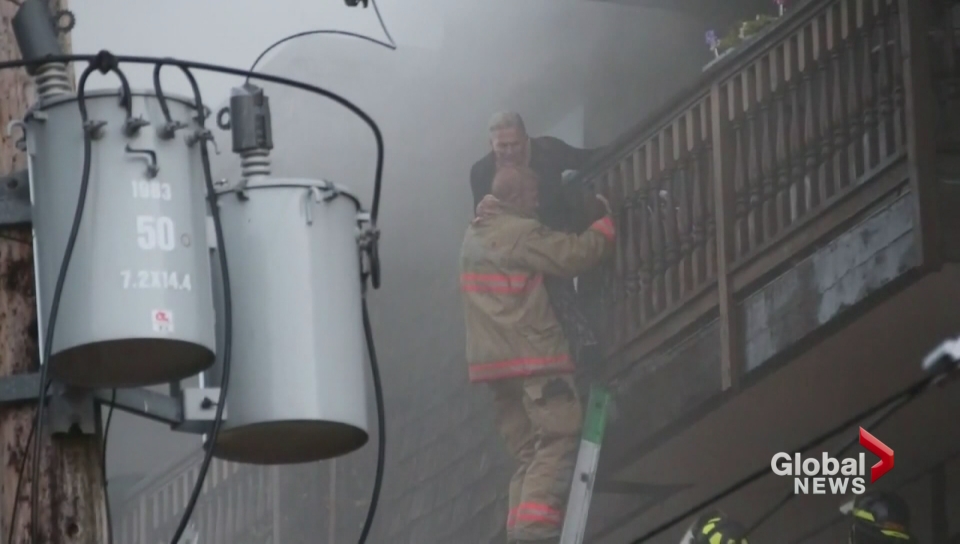In previous years, many firefighters have felt uncomfortable with unveiling their issues with mental illness.

The leader of Vancouver Fire & Rescue Services (VFRS) said his department is making strides to change that stigma.
Darrell Reid is the chief of VFRS and is a speaker at the 15th annual Bottom Line Conference, which is the Canadian Mental Health Association’s national forum on workplace mental health. Reid joined The Jon McComb Show to discuss what actions he is taking to educate his firefighters on mental health issues.
LISTEN: Vancouver Fire Chief talks about improved mental health programs for his department
When Reid became chief last May, he said one of his first priorities was to focus on mental health and general wellness for his firefighters. Reid said awareness on this topic is growing in an industry that ignored it in years past.
“It’s something that our industry has come around to slowly,” Reid said. “We’ve come a long way in a short period of time.”
Reid added that being a firefighter in Vancouver has additional difficulties that can impact someone’s mental health.

Get weekly health news
WATCH: PTSD among first responders

“You’ve got the opioid crisis and the challenges that can come with that,” Reid said. “There are all the family challenges and the work-life balance, such as the commute.”
According to Reid, being a firefighter couples real life situations with a job that has moments of extreme stress and decision making. He said situations involving children can leave an added imopact on firefighters with children of their own.
“That gives them some awareness or different experience then when they have children involved in serious emergencies,” Reid said.
The VFRS chief said Post Traumatic Stress Disorder (PTSD) among first responders is being discussed more in the fire service industry. Reid said pro-active approaches should be taken to addressing the illness, which includes early intervention and understanding the resources available for firefighters struggling with PTSD.
Reid said his department is making progress in educating their firefighters on how to recognize if they or their colleagues are dealing with the illness. He also said the top of the department needs to do the same.
“Even as leaders, we have to have our awareness at a high level as to watching for trends and understanding which things are impacting our teams more significantly and then dealing with those effectively,” Reid said.
Reid attributes improved mental health programs to the millennial generation and their willingness to open up about their own struggles. He said the younger firefighters can set a good example for the more veteran members, but even the latter is becoming more understanding.
WATCH: Canadians asked to flex their muscles in a show of support for first responders with PTSD

“I am seeing a lot more openness in our senior members,” Reid said. “The tide seems to have shifted and there is an acceptance that this is perhaps the most critical issue for the health, safety and wellness of our people.”
Going forward, Reid said their department, as well as other companies world-wide, need to develop a variety of ways their members can seek help.
“Different things work for different people, so organizations have to be really flexible,” Reid said. “Use multi-pronged approaches that work for different generations and different personalities.”
For more information on the Bottom Line Conference, visit their website.











Comments
Want to discuss? Please read our Commenting Policy first.